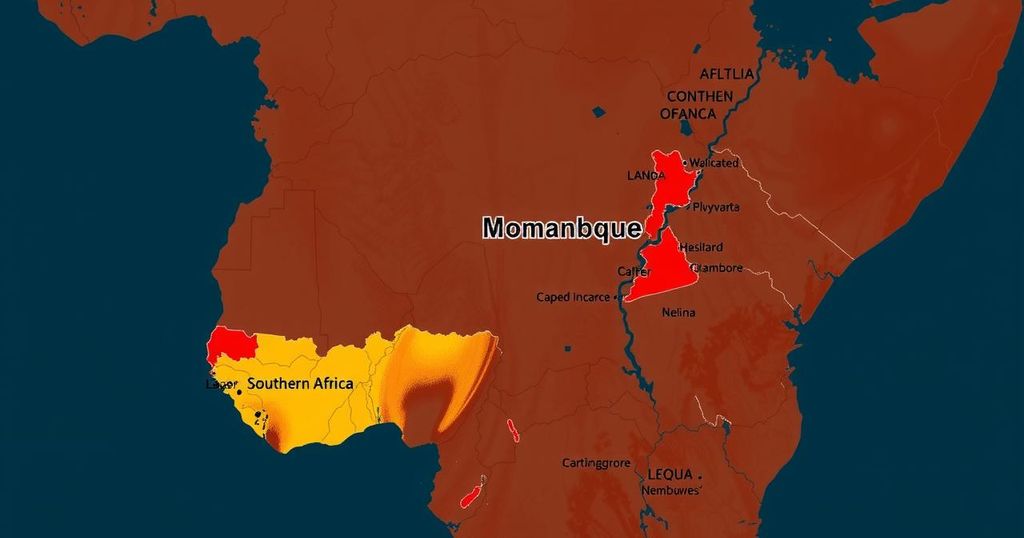Post-election violence in Mozambique has led to significant protests and at least 30 reported deaths following disputed election results favoring the ruling Frelimo party. This unrest raises concerns for the stability of Southern Africa due to potential spillover effects on trade and migration, as neighboring countries like South Africa react by securing borders. Historical ties and recent political developments in the region underline the urgency for comprehensive solutions to these systemic issues.
Mozambique is currently experiencing significant turmoil following the disputed outcome of its October 9 elections, where the ruling Frelimo party’s candidate, Daniel Chapo, secured victory. This has led to widespread protests across the country, resulting in the tragic loss of at least 30 lives. The escalating violence raises concerns not only within Mozambique but also poses potential threats to the stability of the wider Southern African region. Several nations in Southern Africa have recently demonstrated their capacity to conduct credible elections, notably South Africa and Botswana. In Botswana, a regime change occurred after 58 years, reflecting a successful transition of power. This trend of democratic engagement, however, stands in stark contrast to Mozambique’s situation, where the European Union’s observer team reported significant electoral irregularities, including the alteration of results. This troubling pattern resonates with issues seen in Zimbabwe and previous local elections in Mozambique, further exacerbating regional concerns over electoral integrity. Mozambique’s strategic geographical positioning as a crucial commercial hub in Southern Africa cannot be overlooked. With borders shared with important trade partners such as South Africa and Tanzania, instability within Mozambique can ripple across borders. For instance, in response to the protests, South Africa temporarily closed its Lebombo border with Mozambique, resulting in severe economic implications, costing the South African economy approximately R10 million daily due to transportation disruptions of goods. Political stability remains a concern for Mozambique, which is still recovering from a brutal 15-year civil conflict. Although the first elections were held in 1994, the nation continues to grapple with sporadic violence, including attacks by an Islamic State-affiliated group in the Cabo Delgado province, where over 600,000 individuals remain displaced. Political instability threatens to hinder recovery efforts and induce further migration into neighboring countries, complicating regional dynamics.
The recent post-election violence in Mozambique has erupted against the backdrop of ongoing concerns regarding electoral integrity and political stability in Southern Africa. The controversial election results that granted the ruling Frelimo party another term have led to public disputes and widespread protests, mirroring similar electoral challenges faced by regional neighbors. Countries like Botswana and South Africa have successfully managed their electoral processes, enhancing the dichotomy between those fulfilling democratic ideals and Mozambique’s persistent issues. The threat of regional instability following events in Mozambique highlights the interconnectedness of Southern African nations, particularly in terms of economic ties and shared histories of conflict and governance challenges that continue to plague the region.
The ongoing protests and violence following the disputed elections in Mozambique not only signify internal unrest but also pose significant risks to the stability of Southern Africa as a whole. With economic ramifications and a historical backdrop of conflict, the situation demands attention from regional leaders. The importance of maintaining credible electoral processes and political stability in Mozambique is crucial to ensuring that these issues do not spiral into broader regional crises, potentially affecting trade and population stability in neighboring countries.
Original Source: apnews.com





